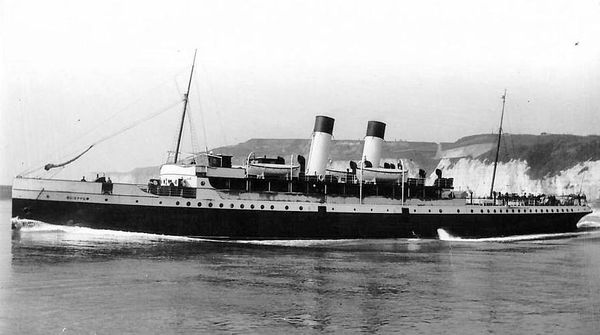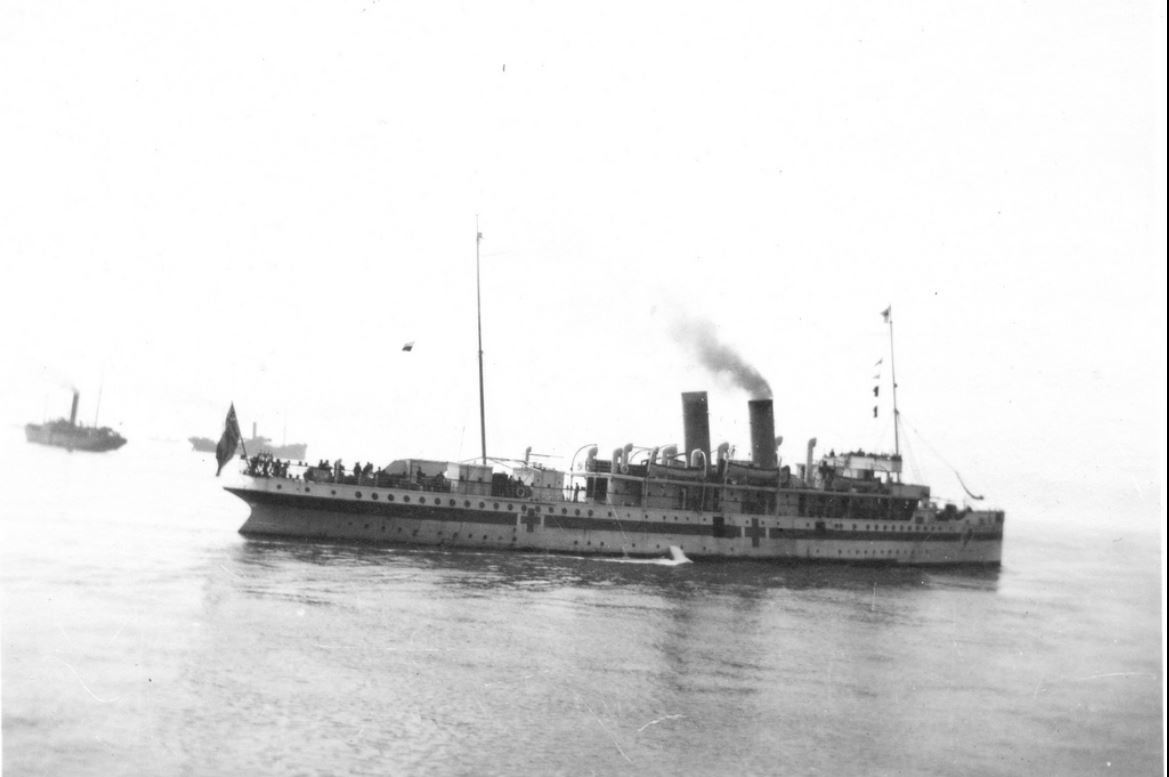Difference between revisions of "HMHS Dieppe"
From Our Contribution
| Line 29: | Line 29: | ||
==Remarks== | ==Remarks== | ||
| − | Dieppe was a steam passenger ferry that was built in 1905 for the London, Brighton and South Coast Railway. She was requisitioned during the First World War for use as a troopship and later as a hospital ship ''HMHS Dieppe'', returning to her owners postwar. On 27 February 1916 she took aboard over 100 survivors from the 12,431 GRT P&O passenger liner Maloja, which was sunk by a mine off Dover. | + | Dieppe was a steam passenger ferry that was built in 1905 for the London, Brighton and South Coast Railway. She was requisitioned during the First World War for use as a troopship and later as a hospital ship ''HMHS Dieppe'', returning to her owners postwar. On 27 February 1916 she took aboard over 100 survivors from the 12,431 GRT P&O passenger liner ''Maloja'', which was sunk by a mine off Dover. |
| − | + | Her ownership passed to the Southern Railway on 1 Jan 1923 and soon after on 27 Nov 1924 ''Dieppe'' had a mishap in which she ended up hitting the breakwater at Newhaven Harbour stern first. The tugs ''Alert'' and ''Richmere'' were sent to her aid. ''Richmere'' became disabled when a cable became entangled around her propeller. The Newhaven lifeboat was sent to her aid. However, ''Richmere'' ended up being dashed against the harbour wall and sank. Her crew were rescued by the lifeboat and the tug was later raised and repaired. ''Dieppe'' managed to dock some five hours after the drama began. | |
Latest revision as of 18:43, 9 January 2023
Contents
Remarks
Dieppe was a steam passenger ferry that was built in 1905 for the London, Brighton and South Coast Railway. She was requisitioned during the First World War for use as a troopship and later as a hospital ship HMHS Dieppe, returning to her owners postwar. On 27 February 1916 she took aboard over 100 survivors from the 12,431 GRT P&O passenger liner Maloja, which was sunk by a mine off Dover.
Her ownership passed to the Southern Railway on 1 Jan 1923 and soon after on 27 Nov 1924 Dieppe had a mishap in which she ended up hitting the breakwater at Newhaven Harbour stern first. The tugs Alert and Richmere were sent to her aid. Richmere became disabled when a cable became entangled around her propeller. The Newhaven lifeboat was sent to her aid. However, Richmere ended up being dashed against the harbour wall and sank. Her crew were rescued by the lifeboat and the tug was later raised and repaired. Dieppe managed to dock some five hours after the drama began.
In 1933 she was sold to W E Guinness and converted to a private diesel yacht, Rosaura. She was requisitioned in the Second World War for use as an armed boarding vessel, HMS Rosaura. Her end came when she struck a mine and sank off Tobruk, Libya on 18 March 1941.

